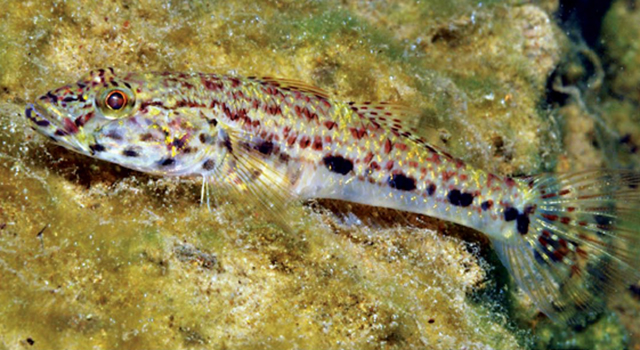| Gobiidae (Gobies), subfamily: Gobiinae |
| 10.6 cm SL (male/unsexed) |
|
demersal; freshwater |
| Asia and Oceania: coastal rivers from Japan to eastern Australia, extending eastward to Kosrae and Pohnpei in the eastern Caroline Islands. |
|
Dorsal spines (total): 7-7; Dorsal soft rays (total): 8-10; Vertebrae: 26-27. Can be diagnosed by having the following characters: moderate mouth, reaching to a point below anterior margin to middle of eye; operculum with a small patch of scales dorsally with 10-20 small scales in two or three longitudinal rows; second dorsal fin usually with I,9 rays; pectoral fin with 18-21 rays (usually 20); predorsal scale count usually 13-18; one or usually two small lateral canal head pores above anterior operculum just before terminal lateral canal pore; papilla line 6 usually well developed; papilla lines composed of a single row of papillae; body with 5 elongate brown to black spots on midside from second dorsal origin to posterior end of caudal peduncle; snout length 9.8-11.3% SL; spots usually bordered by faint brown lines above and below (Ref. 90210). |
|
|
Least Concern (LC); Date assessed: 26 August 2018 Ref. (130435)
|
| harmless |
Source and more info: www.fishbase.org. For personal, classroom, and other internal use only. Not for publication.

